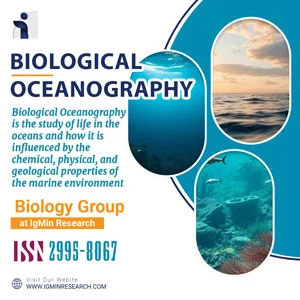About
Submit Your Research on Molecules – Publish in a Leading Molecular Research Journal
At IgMin Research, we welcome high-quality submissions in the field of molecular research. If you're working on groundbreaking discoveries in molecules, our journal offers a professional platform for visibility, credibility, and global reach.
We support molecular research journal submission from scientists exploring structural biology, chemical synthesis, drug development, and nanotechnology.
Why Choose Us?
- Fast-track molecular research journal submission with expert editorial review
- Wide visibility through molecule studies open access publishing
- Ideal for academic, clinical, and industrial researchers
- High citation potential through indexing and archiving
We encourage you to submit research on molecules that contributes to advances in health, materials, and environmental sciences.
Scope Includes:
- Structural & functional analysis of molecules
- Biomolecular engineering & drug targeting
- Environmental molecular interactions
Contribute today to the future of science through molecule studies open access publishing with IgMin Research. Let your research make an impact where it matters.

Why publish with us?
Global Visibility – Indexed in major databases
Fast Peer Review – Decision within 14–21 days
Open Access – Maximize readership and citation
Multidisciplinary Scope – Biology, Medicine and Engineering
Editorial Board Excellence – Global experts involved
University Library Indexing – Via OCLC
Permanent Archiving – CrossRef DOI
APC – Affordable APCs with discounts
Citation – High Citation Potential
Which articles are now trending?
Research Articles
- Efficient Room Temperature Ethanol Vapor Sensing by Unique Fractal Features of Tin Oxide
- Designing a Compact High-precision Positioner with Large Stroke Capability for Nanoindentation Devices
- Semiclassical Potential Function of B–B Interaction: Reduction to Integrable Form
- Ammonia: A Trend of Dry Deposition in Vietnam
- Application of Virtual Reality (VR) in Facility Management Competency-based Training (CBT) in the Era of Industrie 5.0
- Knowledge Discovery on Artificial Intelligence and Physical Therapy: Document Mining Analysis
Advertisement







